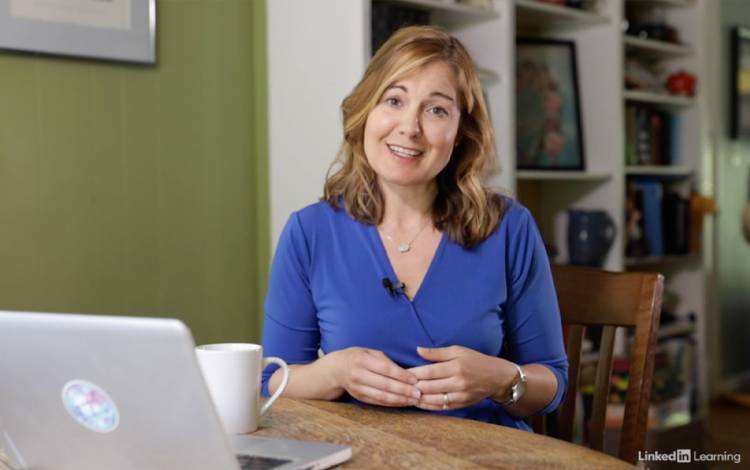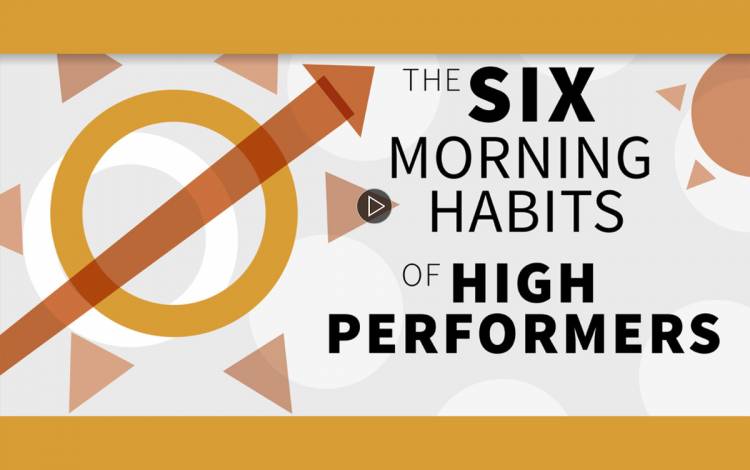Bite-Sized, No-Cost Professional Development Courses
LinkedIn Learning offers short courses on leadership, work/life and more

Like many LinkedIn Learning users, Carl Schuler found the online video learning tool to be an easy, effective way to sharpen his digital skills.
Schuler, a clinical research associate at the Duke Clinical Research Institute, has periodically turned to LinkedIn Learning, which is available at no cost to Duke staff, faculty and students, to gain a deeper knowledge of Microsoft Office tools such as Excel and Outlook.
 “It’s a hidden gem,” Schuler said. “It has been a constant companion and a consistent and reliable source of helpful information, as I’ve adapted to an evolving and changing workplace.”
“It’s a hidden gem,” Schuler said. “It has been a constant companion and a consistent and reliable source of helpful information, as I’ve adapted to an evolving and changing workplace.”
With more than 13,000 courses, many covering technical skills ranging from software design to photography, LinkedIn Learning, formerly Lynda.com, has long been a source for people looking to how to do specific things. But as Fuqua School of Business Adjunct Professor Dorie Clark, points out, LinkedIn Learning also offers an array of lessons about important soft skills.
“They’ve really evolved to have a lot more business and managerial topics,” said Clark, who has produced 21 LinkedIn Learning videos on topics such as strategic thinking and navigating office politics.
And while there are plenty of deep-dive courses that feature hours of detailed instruction, LinkedIn Learning also provides approachable, quick-hitting courses.
“People might be busy, but if they’re crafty around the edges, they can find an hour in their week,” said Clark, whose courses are often around half an hour.
Here are a few short LinkedIn Learning courses that can firm up your soft skills.
Cultivating Mental Agility
One of Clark’s courses covers how to be a nimble decision maker who can adjust during times of change. That skill is especially useful now, as workplaces and teams deal with upheaval due to the COVID-19 pandemic.
In the 37-minute course, Clark provides tips on how to manage stress and the flow of day-to-day tasks to find creative solutions. She also explains how to balance experience gained from past successes while also being open to innovative ideas.
In a section of the course discussing the importance of building resiliency, Clark discusses how looking at how you weathered past periods of upheaval can help steel you for any current challenges.
“It’s useful to think back on times that you have adapted successfully in the past to remind yourself that it’s possible,” Clark said. “The current circumstance might feel impossible or overwhelming, but the truth is, we have all adapted to change many times before. Anybody that’s been a kid and gone to a new grade, or left home and went to college, those are really enormous changes and we managed to do them.”
Balancing Working From Home with Family
This summer, clinical psychologist and Georgetown University faculty member Andrea Bonior released a 28-minute course offering advice on managing the challenges of working from home while parenting.
Bonior offers tips on time management, setting boundaries and showing self-compassion.
One idea Bonior offers is to create a red light, yellow light, green light system to let family members know how available you are. By using a small homemade sign or signals to show it’s a red light situation, you are communicating that you’re in the midst of a key work task and are unavailable. Yellow light situations mean you’re doing something important, but you can handle pressing requests, while green means you’re working, but can talk if needed.
“When everyone knows the ground rules, there will be fewer power struggles and fewer intrusions,” Bonior said. “When you’re better able to bend, you have less chance of breaking.”
Skills for Inclusive Conversations
Mary-Frances Winters, a diversity and inclusion strategist with her own consulting firm, produced a 53-minute course last year on how to prepare yourself and your organization for conversations on topics such as race and inclusion that are healthy and productive.
Winters points out that these conversations are often avoided for fear of making people uncomfortable. But with current events making these topics impossible to ignore, it’s important to have tools to have these discussions and make an inclusive workplace.
A good way to gauge your own readiness for a conversation about these topics is to consider Winters’ “Four Es” of exposure, experience, education and empathy.
First, think about the people in your life and ask yourself how much exposure you’ve had with people from other groups and backgrounds. Then, take an accounting of how much experience you have being around people from other groups.
If you don’t have much in the way of exposure or experience, then it’s time to consider the next step of education by seeking out books or first-hand opportunities to broaden your understanding of these populations. The goal is to develop a healthy sense of empathy, which Winters said is an essential tool to carry into conversations about race and inclusivity.
“Empathy does not mean agreement, it means that you can suspend judgement, listen, and try to see the world through the lens of the other person,” Winters said.
Six Morning Habits of Top Performers
Not all of the courses on LinkedIn Learning are videos.
In a breezy 23-minute, interview-style course on morning habits that can breed success, author Pete Mockaitis, who has written two books on leadership and attaining personal and professional goals, outlines his strategy of using truthful positive affirmations, exercise, journaling and other steps to begin each day with high motivation and clarity of purpose.
One habit he leans on is setting a timer for 10 minutes and sitting in meditative silence. He said he often keeps a notepad handy to write down the ideas that often pop into his mind.
“Most of us, we don’t have a lot of time in silence, usually it’s chaos from the time we get up, then we’re in the car listening to podcasts or the radio or music, and then we’re at work with phone calls and people,” Mockaitis said. “Usually there’s not a lot of time for peaceful, purposeful silence. Yet when we quiet our minds, that’s when our best ideas come, it’s when we tap into our inner wisdom.”
Got a professional development story for us to cover? Send ideas, shout-outs and photographs through our story idea form or write working@duke.edu.